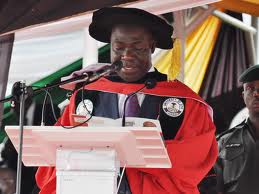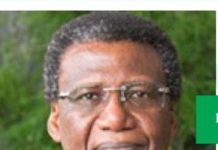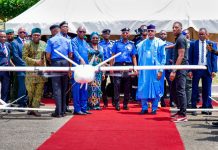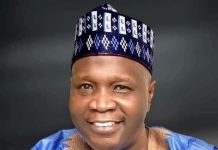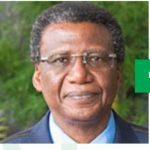By Olusegun Emmanuel, Abuja.
Deputy Senate President, Senator Ike Ekweremadu, has advocated for a modified presidential system of government as a panacea to effective governance and enduring democracy in Nigeria.
The Deputy Senate President spoke at the School of Advanced International Studies, Johns Hopkins University, Washington DC in US while delivering a paper entitled, “Constitution Amendment in an Emerging Democracy: the Nigerian Experience.”
The lawmaker enumerated the contentious constitutional issues in Nigerian federalism, and submitted that “the presidential system has often come under criticism for its concentration of powers in political chief executives.
He also said the system encourages “divisive, zero-sum factional and sectional competition for political offices, expensiveness, and promotion of the politics of strong men, rather than strong institutions.”
According to a statement by his Special Adviser on media, Mr. Uche
Anichukwu, Ekwerenmadu however stressed that while the parliamentary system looked attractive, it had nevertheless failed the country in the First Republic.
He also noted that the challenge of governance in Nigeria was not essentially the choice of governmental system, but “the warped implementation of these systems.”
Ekweremadu who is also Chairman, Senate Committee on the Review of the 1999 Constitution, admitted that a presidential system was necessary to hold the nation’s vast territories and contending forces in the federation together.
He posited that Nigeria needed to inject some elements of parliamentary system to entrench greater accountability and cohesion in governance.”
Ekweremmadu said, “I suggest a hybrid system or modification of the present presidential system to introduce ‘Question Time’ in the parliament at pre-determined regular intervals.
He said the exercise should hold the ministers consistently accountable and to replace impeachment with a procedure for vote of no confidence to make way for early elections when the need be.
Ekweremadu listed other issues in constitution amendment in Nigeria to include the tenure of political chief executives, federal structure, fiscal federalism, local government system, policing system, and legislative lists.
Others, according to him, included the electoral system, independence of the electoral and oversight agencies, residence rights, and the processes for amending the constitution itself.

